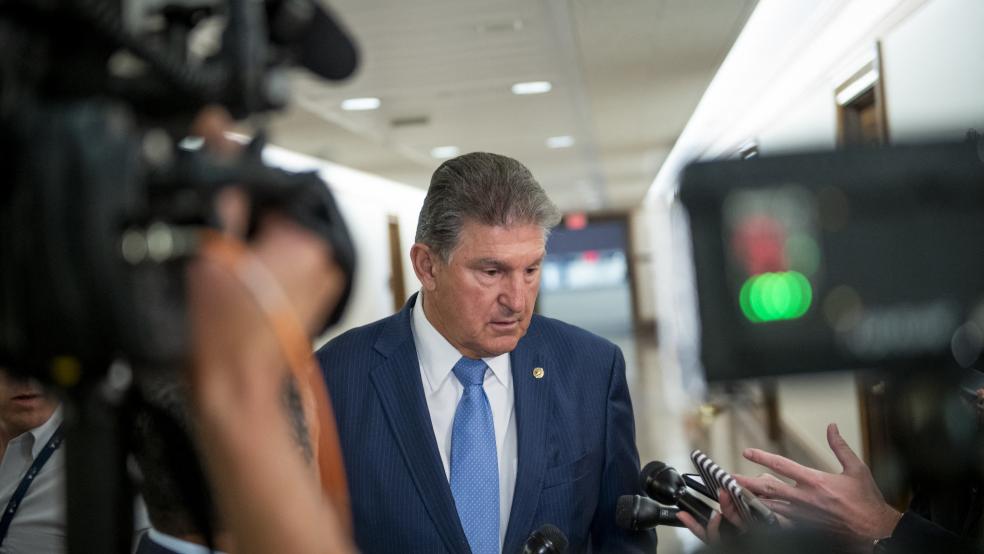Senate Democrats have reportedly finalized another key piece of the scaled-back economic plan they want to pass within weeks: A deal with Sen. Joe Manchin (D-WV) that would tax high earners and use the money to extend the solvency of Medicare.
Medicare’s trust fund for inpatient hospital care is projected to be depleted by 2028, according to a report from the program’s trustees released last month. The Democratic proposal reportedly would require individuals making more than $400,000 a year and couples making more than $500,000 to pay a 3.8% tax on their earnings from so-called pass-through businesses.
The surtax would close what Democrats say is a costly loophole in the tax code and raise some $200 billion over a decade. The additional revenue is reportedly projected to push off the Medicare trust fund’s insolvency until 2031.
Democrats reportedly expect to submit the plan for review by the Senate’s parliamentarian within days. Democrats want to use a fast-track process called budget reconciliation to pass their plan along party lines and avoid the threat of a Republican filibuster, but that process involves strict rules that the parliamentarian will have to confirm have been met.
Why it matters: The Medicare plan is the latest sign that negotiations between Senate Majority Leader Chuck Schumer (D-NY) and Sen. Joe Manchin (D-WV) are making progress on a scaled-back economic package to replace the Build Back Better plan that collapsed late last year when Manchin rejected it. That plan reportedly could include about $500 billion in spending on climate, health care and other programs and another $500 billion in deficit reduction over 10 years.
Democrats on Wednesday sent the parliamentarian another part of their package, a 190-page plan to lower prescription drug costs that, among its provisions, would allow Medicare to negotiate some drug prices. “Democrats say both plans will show voters they are battling to curb health care costs and protect the widely popular Medicare program, positions they say will be dangerous for Republicans to oppose,” Alan Fram of the Associated Press writes.
Despite the signs of progress, Democrats still have a long way to go to finalize their deal, particularly the climate and energy portions. Those programs are now reportedly expected to carry a price tag of $300 billion to $350 billion, down from $555 billion in the Build Back better bill passed by the House last year.
“Suggestions that a reconciliation deal is close are false,” Sam Runyon, a spokesman for Manchin, said in a statement to The Washington Post. “Senator Manchin still has serious unresolved concerns and there is a lot of work to be done before it’s conceivable that a deal can be reached he can sign onto.”
The bottom line: The Post’s Maxine Joselow and Tony Romm note that “a wide array of issues — about the size, scope and cost of the package — remain up for debate” and add that Democrats have repeatedly thought they were close to a deal with Manchin only to see talks break down. Still, Democrats appear to be closer to a deal than they have been in many months.





